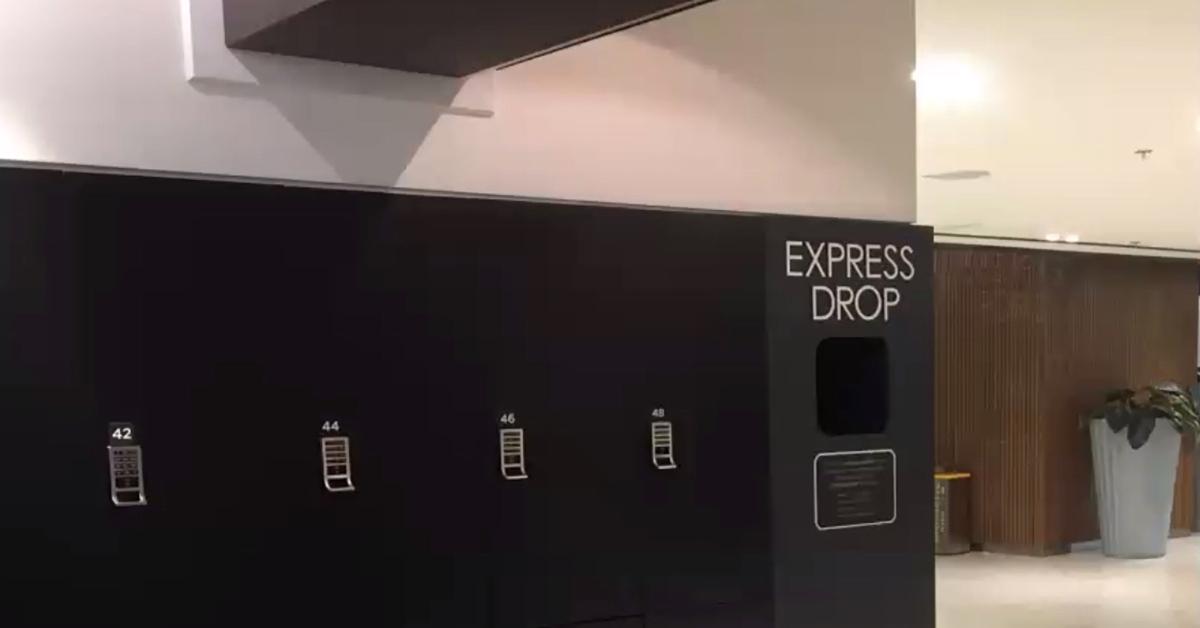CHICAGO — They’re secure, convenient, require minimal human interaction and can add not only to a cleaner’s bottom line but increase the overall value of their business.
This was the message from Dan Stoof, founder of Breezy Laundry Lockers during a webinar hosted by the Drycleaning & Laundry Institute (DLI) earlier this month. And, while lockers might lack the personal touch, that might be exactly what some customers are looking for in a busy world.
The Impersonal Touch
The key concept for using lockers is to provide a convenient pick-up and drop-off point for your customers, providing them with an Uber-like experience. “They are available 24/7 and powered by various types of software,” Stoof says.
While some customers like the personal touch of interacting with the customer service representatives at a cleaner, other customers — especially younger customers — don’t want this type of service. For these clients, lockers are a perfect mix of professionalism and efficiency.
“The way lockers work for your customers is, first, the customer will go onto your website and create an account,” Stoof says. “They’ll find an open locker, lock their garments into that locker and make an order, either online through an app or through text. Once you pick the garments up, clean them and put them back into the lockers, that customer will then receive a notification to let them know what locker their order is and the code to open it. They’ll also get an email with a breakdown of what was in their order, and their credit card will be charged.”
Location, Location, Location
Stoof recommends three types of locations that lockers are well suited to serve. “If you have a laundromat or drycleaning store, they can be placed there, helping you extend your operating hours,” he says. Since they run on their own, your store can be open 24 hours a day. “They also give your customers a faster experience, where they can just come in, drop something off and pick it back up without having to wait in line and pay over the counter.
The second area favorable for lockers is in private locations, such as apartment buildings, offices, gated communities, colleges and other areas where people are gathered. “What’s really great about these is that you have a captive market,” Stoff says. “You become the most convenient place to drop off and pick up dry cleaning and laundry available to these people.” He adds that, typically, since you are providing an amenity to the residents or workers, management won’t charge rent for locker placement. These areas are also highly efficient for the cleaner, since multiple customers can be serviced in the same location.
The third area Stoof recommends are public areas, such as shopping malls, transport centers and retail stores. “A really good thing about public locations is that there’s more of a marketing opportunity,” he says.
When looking for locations that can benefit from lockers, Stoof suggests doing research, and then making personal contact with the decision makers. With an apartment building, for example, setting up an appointment with the building manager is a good way to begin. “Start off with a nice, no-pressure call, and just ask to go there and learn about the property,” he says. When you go, have a proposal prepared, he suggests. “Once you’re there, building managers are generally pretty open to this. It gives you a good chance to build a rapport but also find potential locations for the lockers and get a feel for the size of the building and if it’s going to be worth it to place your lockers there.” He also suggests getting contracts with the building’s management in place when an agreement is reached, which builds the value of the lockers for the cleaner’s business.
Return on Investment
One of the best things about lockers, Stoof says, is that they provide a cleaner with a clear path for return on investment (ROI). Stoof estimates that the set-up investment for a locker system is about $1,000 per location. If the locker reaches an average of $800 per month in revenue, the ROI works in the cleaner’s favor. If contracts are in place, however, they become a value multiplier.
“If you’re planning on selling your business in two, five, 10 or 20 years, the value is in that contract,” he says. “This is why I say it’s really important to have contracts when you install lockers in a building because that’s something potential buyers are going to be looking at. An $800 per month locker is worth close to $10,000 per year, and at a 1.5x or 3x multiplier, depending on how you value these things, could make that locker to be worth $14,000 to $28,000.”
Have a question or comment? E-mail our editor Dave Davis at [email protected].

